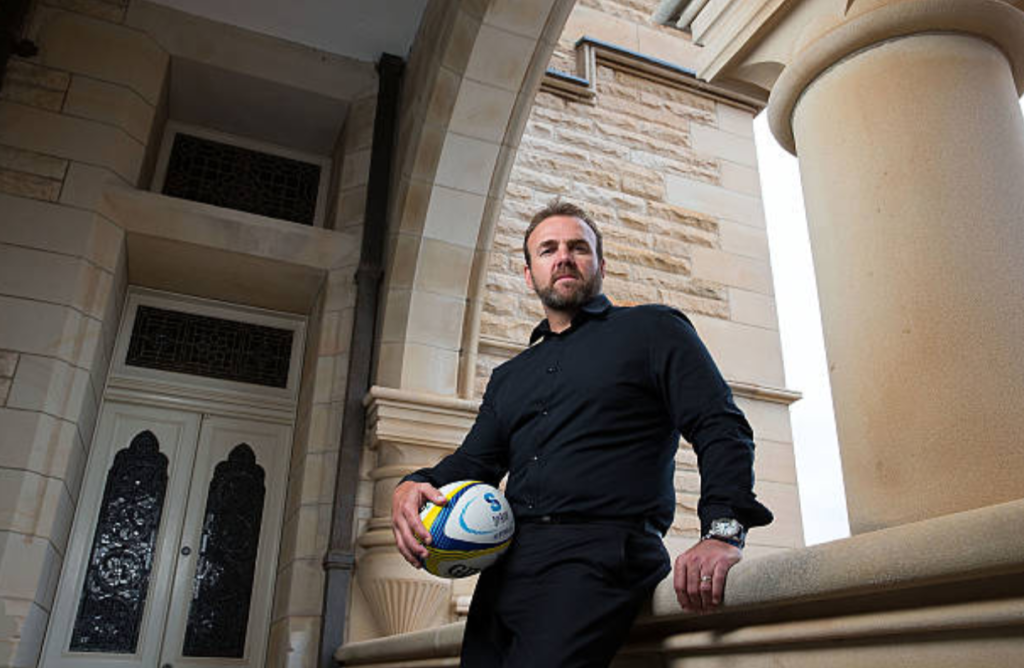Sanzaar CEO Andy Marinos on the future of southern hemisphere rugby and the potential of a global season.
What are the chances of a global season becoming a reality?
‘I think it will happen. I am particularly close to it at the moment, being on a number of working parties around it. We have put forward a few proposals. I am working closely with my counterpart at the Six Nations and some of the northern hemisphere unions. The big drivers behind it are to make sure we can manage the player welfare a lot better and get a much better narrative around the international programme so we have games that have meaning. At the moment we have a series of games in July and November that are just a set of friendlies. You are not playing for anything and there is no meaning behind them. There is a lot of work going on around a global alignment in the season, getting clearly defined player-release windows so that we have the best people playing in the international game and that they are released without interference from their clubs. There is a will around the table to go down that path. I remain optimistic that in the not-too-distant future we will be moving into a more globally aligned season where there are clearly defined windows for international and domestic rugby.’
STEFAN TERBLANCHE COLUMN: Let’s go north
Bill Beaumont was re-elected as World Rugby chairman ahead of Agustin Pichot. Will we ever get a leader from the southern hemisphere?
‘Our best shot was this last election. Let’s not forget that Gus lost that election only because the greater number of votes come from the Six Nations. There are four nations voting over here versus six nations from the north. When you look at the support Gus got from the rest of the world, it was in his favour. The game is at a tipping point. It needs a revolution. It needs to adapt and make itself more relevant to the environment in which we are trying to compete. Other major sports around the world are so much more advanced. A big part of the challenge to World Rugby is how to grow the game. From a high-performance perspective we have embraced professionalism, whereas from an administration point of view, we have lagged behind. We have tended to stay with quite a draconian governance structure.’
How important are the Springboks and SA Rugby to the governance of Sanzaar?
‘From a value point of view, South Africa have always and continue to be the biggest contributor in terms of eyeballs and viewership and attendances to the Super Rugby and Rugby Championship games. They have been a very powerful partner at the table, not only from a value point of view but also from a competitiveness point of view. If you speak to anybody from Australia or New Zealand who has any knowledge of rugby, having the Springboks coming over to play is critically important to the development of their players. There’s nothing saying that South Africa couldn’t have a foot in both hemispheres and get the best of both worlds. But from a Sanzaar perspective, it remains important that South Africa is part of the joint venture.’
After New Zealand Rugby announced plans for a trans-Tasman tournament in 2021, what could Super Rugby look like next year?
‘We are busy working on it. You can do a whole lot of planning and think you can deliver Product A, but 24 hours later it becomes Product B. Realistically, it may be a bit of a challenge to get the cross-border effect we have had. Purely because of border controls, quarantine periods and accessibility to fly as frequently as we have. There has been a lot of commentary in the media and positioning. We need to be realistic and understand every union that is part of the Sanzaar alliance has a responsibility to ensure rugby is sustainable in each of their markets. Without compromising anybody, we are working through it as a joint venture. The likelihood of us being able to deliver a round-robin structure as things are now is not realistic, but there is an acknowledgement that a cross-border competition needs to be in place in the future. We have seen that the ability to play against different countries on a domestic level strengthens you on an international level.’
ALSO READ: More Springboks commit to Sharks
If you could make changes to the game, what would they be?
‘Without a doubt, it would be the governance of the game. That is the most critical and pressing part of what we are trying to deal with. We have to get the best business minds, that are independent and without prejudice to club and country, around the table and run this as a business. Look at other sports across the world; they are run as professional businesses. That is our biggest challenge. The politics and posturing hold us back. They don’t allow us to move forward and make good strategic business decisions.’
Photo: Mark Metcalfe/Getty Images





